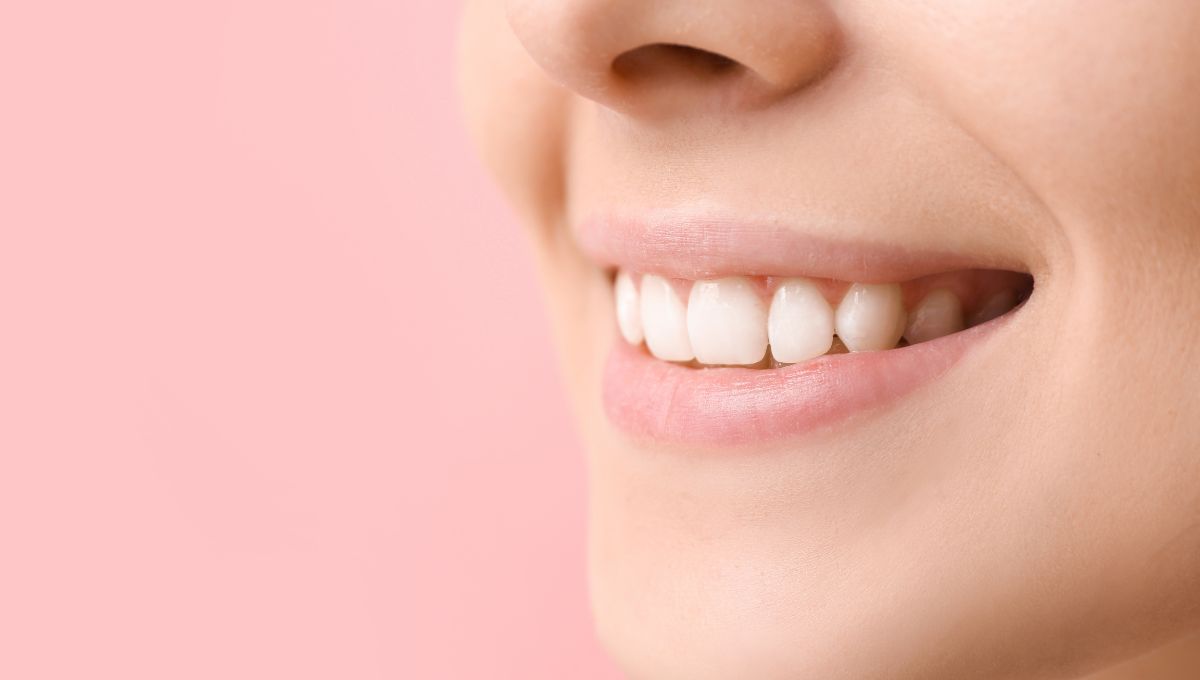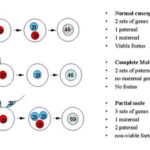
Bleeding gums are a common concern during pregnancy, affecting anywhere from 30-100% of pregnant women. The rise in hormone levels during pregnancy causes inflammation and sensitivity in the gums that can lead to bleeding when brushing or flossing. This condition is known as pregnancy gingivitis.
The increase in progesterone and estrogen during pregnancy causes an increase in blood flow, but can also cause a reaction in the gums that allows plaque to irritate them more easily. Plaque buildup on the teeth from poor oral hygiene leads to gingivitis, which causes red, swollen, tender gums that bleed easily. The changes in hormone levels also affect the body’s response to plaque, making the gums more sensitive and prone to inflammation.
If left untreated, gingivitis can progress to periodontitis, a more severe gum infection that damages the soft tissue and destroys the bone that supports the teeth. Since pregnant women are already at increased risk of gingivitis, it’s crucial to maintain excellent oral hygiene habits throughout pregnancy to avoid complications.
Related: Understanding Pregnancy and Dental Health: A Must-Read Guide
Risks of Bleeding Gums
Bleeding gums during pregnancy can lead to some concerning health risks if left untreated. The most serious risk is developing an infection in the gums, also known as gingivitis or periodontal disease. Gingivitis occurs when plaque builds up on the teeth and gums due to poor oral hygiene. This plaque harbors bacteria that can enter the bloodstream through tears or openings in the gums.
An untreated gum infection can have consequences for both mom and baby. For the mother, it raises the risk of premature birth. Research shows pregnant women with severe gum disease are more likely to deliver their babies early compared to women with healthy gums.
The infection may also affect the unborn baby’s health. Some studies indicate gum disease can increase chances the baby is born underweight or contracts infections as well. Bacteria from gum infections may enter the placenta and trigger inflammation that restricts fetal growth and development.
By preventing and treating gum bleeding promptly, mothers can lower risks to themselves and their developing babies. Practicing good oral care habits is key to avoiding complications.
Home Remedies
Pregnant women with bleeding gums can try several natural home remedies to help soothe inflammation and prevent further bleeding. These remedies are safe, effective, and easy to use at home.
Salt Water Rinse
- Mix 1 teaspoon of salt in a cup of warm water.
- Rinse your mouth with the solution for 30 seconds.
- Repeat 2-3 times a day to reduce bacteria and ease gum inflammation.
Baking Soda
Baking soda is a mild abrasive that can help remove plaque and reduce inflammation in the gums. It has antibacterial properties that can help fight off infections and promote gum health.
- Make a paste of baking soda and water.
- Gently brush your gums and teeth with the paste to remove plaque and reduce inflammation.
Aloe Vera
Aloe vera is a plant with numerous health benefits, including reducing inflammation and soothing the gums. Its anti-inflammatory properties make it an excellent remedy for bleeding gums.
- Apply a small amount of aloe vera gel to your gums.
- Gently massage the gel for a few minutes and then rinse your mouth.
- Aloe vera’s anti-inflammatory properties can help soothe the gums.
Tea Tree Oil
Tea tree oil is an essential oil with antibacterial and anti-inflammatory properties. It can help reduce gum inflammation and fight off infections, making it a valuable remedy for bleeding gums.
- Dilute a drop of tea tree oil in a cup of water.
- Rinse your mouth with the solution.
- Use it once a day as tea tree oil has antibacterial properties that can help reduce gum inflammation.
Turmeric
Turmeric is a spice with powerful anti-inflammatory and antimicrobial properties. It can help heal bleeding and reddening of the gums, making it a useful remedy for gum issues.
- Make a paste of turmeric powder and water.
- Gently massage the paste onto your gums and leave it for a few minutes.
- Rinse your mouth thoroughly. Turmeric’s antimicrobial properties can help heal bleeding and reddening of the gums.
Olive Oil
Olive oil is rich in monounsaturated fats and has anti-inflammatory properties. It can help reduce gum inflammation and promote healing, making it a beneficial remedy for bleeding gums.
- Massage a small amount of olive oil onto your gums.
- Olive oil’s anti-inflammatory properties can help reduce gum inflammation and promote healing.
Cloves
Cloves are a spice with antibacterial and anti-inflammatory properties. They can help alleviate gum issues and provide relief from pain and inflammation.
- Gently chew a few whole cloves to release their oil.
- Let the oil spread in your mouth for a few minutes before spitting it out.
- Cloves have antibacterial and anti-inflammatory properties that can help alleviate gum issues.
Pomegranate
Pomegranate is a fruit and juice that has anti-inflammatory and antioxidant properties. It can help improve gum health and alleviate gum issues.
- Drink pomegranate juice or eat the fruit.
- Pomegranate has anti-inflammatory and antioxidant properties that can help improve gum health.
Hydrogen Peroxide
Hydrogen peroxide is a disinfectant that can help reduce bacteria and alleviate gum inflammation. It is commonly used in oral care and first aid kits.
- Dilute hydrogen peroxide with an equal amount of water.
- Rinse your mouth with the solution for 30 seconds and then spit it out.
- Use it once a day to reduce bacteria and alleviate gum inflammation.
Arnica
Arnica is a plant with anti-inflammatory properties that can help reduce gum inflammation. It is often used in natural remedies for various health issues.
- Dilute arnica tincture with water as per the instructions on the product.
- Rinse your mouth with the diluted tincture.
- Arnica has anti-inflammatory properties that can help reduce gum inflammation.
Oil Pulling
Oil pulling is an ancient Ayurvedic practice that involves swishing oil in the mouth to reduce bacteria and improve gum health. It can be done with coconut or sesame oil.
- Take 1-2 tablespoons of coconut or sesame oil.
- Swish the oil in your mouth for 15-20 minutes and then spit it out.
- Oil pulling can help reduce bacteria and improve gum health.
Related: KT Tape For Pregnancy Sciatica: No More Suffering!
Proper Brushing Technique
Brushing properly is one of the most important ways to prevent and treat bleeding gums during pregnancy. Be sure to use a soft-bristled toothbrush and brush at a 45-degree angle towards the gums. Gently brush each tooth using circular motions, applying light pressure. Avoid scrubbing too hard, which can damage gums further.
Focus on massaging the gums and cleaning just above and below the gumline, where plaque buildup often occurs. Take your time, brushing for a full two minutes. Ensure you brush all surfaces – the front, back, tops, and insides of teeth.
Replace your toothbrush every 3-4 months or sooner if the bristles appear frayed. A worn-out toothbrush is less effective at plaque removal. An electric toothbrush with a pressure sensor and timer can help provide a thorough clean.
Flossing

Flossing is one of the most effective ways to prevent and treat bleeding gums during pregnancy. The hormones of pregnancy can cause inflammation and irritation in your gums, allowing bacteria to build up. Flossing helps remove plaque and food particles to keep your gums healthy.
It’s important to floss properly. Avoid snapping the floss into your gums, which can cause injury. Gently guide the floss between each tooth, curving it around the base of each tooth to remove debris. Make sure to floss below the gumline, where bacteria accumulates.
Floss once per day, preferably before bedtime. If you experience bleeding when you begin flossing, keep at it – the bleeding should subside within a few days as your gums heal. Consider using a soft unwaxed floss or dental tape if normal floss hurts your gums. Proper flossing technique and frequency is key for managing gum bleeding and keeping your mouth clean during pregnancy.
Eating Habits
What you eat during pregnancy can have a big impact on your dental health and bleeding gums. Focus on eating a balanced diet rich in vitamins and minerals.
Foods to Eat
- Citrus fruits like oranges, grapefruits, lemons. The vitamin C helps strengthen blood vessels and gums.
- Leafy greens like spinach and kale. They contain vitamin K which helps blood clot.
- Yogurt contains probiotics that support gum health. Go for unsweetened Greek yogurt.
- Cheese is a good source of protein and calcium that keeps teeth strong.
- Soybeans, tofu, nuts and seeds provide vitamin E and healthy fats.
- Carrots and sweet potatoes have vitamin A for healing.
- Salmon, tuna, eggs are high in vitamin D for calcium absorption.
Foods to Avoid
- Sugary snacks like cookies, candy, soda. The sugar feeds the bacteria causing tooth decay.
- Starchy carbs like bread, pasta, potatoes. They stick to teeth and promote bacteria growth.
- Acidic drinks like coffee, alcohol, fruit juice. They erode tooth enamel over time.
- Salty snacks like chips, pretzels, crackers. Salt dries out the mouth allowing more bacteria growth.
Focus your diet on more fruits, vegetables, lean proteins, yogurt and cheese. Limit sugary, starchy and acidic foods. Drinking plenty of water also helps flush bacteria from the mouth.
Vitamins
Pregnant women require more vitamins and minerals than usual. Vitamin deficiencies can make gums more susceptible to bleeding.
Vitamin C
Vitamin C helps maintain healthy gums and teeth. It is important for collagen production, wound healing, and healthy connective tissue. Vitamin C also has antioxidant properties that reduce inflammation.
Eat citrus fruits, tomatoes, broccoli, red/green peppers, kiwi, strawberries, cantaloupe, baked potatoes, and spinach. You can also take vitamin C supplements, but consult your doctor first. The recommended daily intake is 85 mg.
Vitamin D
Vitamin D helps absorb calcium, which is needed for strong teeth and bones. It also has anti-inflammatory effects that may benefit bleeding gums.
Get vitamin D from fatty fish, fish liver oil, egg yolks, fortified milk, and exposure to sunlight. Supplements are another option but talk to your doctor first, as too much vitamin D can be harmful. The recommended daily intake is 600 IU.
When to See a Dentist
Bleeding gums during pregnancy can sometimes be a sign of a more serious dental issue that requires professional treatment. Here are some signs that indicate it’s time to schedule an appointment with your dentist:
- Bleeding that won’t stop even after trying home remedies and better oral hygiene habits. Persistent bleeding is a red flag.
- Pain or soreness in your gums. Healthy gums shouldn’t be painful.
- Receding gums. If your gums appear to be pulling away from your teeth, see a dentist to prevent further damage.
- Tooth decay or cavities. Morning sickness and changes in diet can increase your risk.
- Gum disease like gingivitis or periodontitis. You’ll need deep cleanings to remove built-up plaque.
- Abscesses or infections in the gums or teeth. You’ll likely need antibiotics.
- Any loose teeth, which could indicate advanced periodontal disease.
If you notice any of these issues, make an appointment with your dentist right away. Don’t delay necessary dental treatment during pregnancy. Dentists can safely:
- Perform cleanings to remove plaque and tartar buildup.
- Provide fluoride treatments to strengthen enamel.
- Fill cavities and treat tooth decay.
- Prescribe antibiotics for infections.
- Extract severely damaged teeth if necessary.
- Provide deep cleanings below the gumline for advanced gum disease.
With prompt professional dental care, bleeding gums and other oral health issues can often be resolved or controlled during pregnancy. Don’t wait until after childbirth – take action as soon as concerning symptoms appear. Protect both your health and your baby’s.
Related: Exploring Dietary Strategies to Alleviate Morning Sickness during Pregnancy
Prevention
The best way to prevent bleeding gums during pregnancy is through regular dental visits and daily oral hygiene.
Make sure to see your dentist at least once during your pregnancy. Your dentist can clean your teeth professionally, check for any potential issues, and give you tips on caring for your oral health during pregnancy. Regular cleanings will help reduce plaque buildup and inflammation that leads to bleeding gums.
It’s also critical to maintain a strong daily oral hygiene routine during pregnancy. Here are some tips:
- Brush your teeth gently but thoroughly at least twice a day using a soft-bristled toothbrush. Take your time and focus on removing plaque from along the gumline.
- Floss once per day. Be gentle as your gums may be more sensitive. Break up plaque between teeth and just below the gumline.
- Rinse daily with an antimicrobial mouthwash (without alcohol) to reduce bacteria.
- Avoid smoking and chewing tobacco, which can irritate gums.
- Drink plenty of water to stay hydrated and promote saliva flow, which washes away bacteria.
- Limit sugary snacks and acidic drinks like juice, as sugar feeds the bacteria that cause plaque buildup.
Staying on top of your oral hygiene routine is the best way to keep gums healthy and reduce bleeding during pregnancy. Be sure to see your dentist regularly as well. With proper prevention, you can keep your smile bright during this special time.
Related: Understanding the Intricacies of Cream Pie Pregnancy: An In-Depth Guide
Conclusion
Throughout this article, we covered several natural home remedies for bleeding gums during pregnancy. The key points are:
- Bleeding gums are common during pregnancy due hormonal changes and increased blood flow, but it’s still important to address the issue.
- Proper oral hygiene is crucial. Brush gently 2-3 times per day and floss daily. Use a soft-bristled toothbrush and fluoride toothpaste.
- Eat a balanced diet with plenty of vitamin C and limit sugary foods. Stay hydrated.
- Nutritional supplements like vitamin C, CoQ10, and magnesium may help strengthen gums. But consult your doctor before taking supplements during pregnancy.
- Use antiseptic mouthwashes containing ingredients like aloe vera or green tea. Do not use alcohol-based mouthwashes.
- Try simple home remedies like gargling with salt water or using a cold compress on your gums. But avoid potentially unsafe herbs.
- See your dentist if bleeding persists despite home care. They can clean your teeth professionally and recommend prescription products if needed.
- With proper oral hygiene and care, bleeding gums can be managed during pregnancy. Protect your health and your baby’s by taking care of your gums.
While inconvenient, bleeding gums are a common annoyance during pregnancy. With the natural home remedies and tips in this article, you can help strengthen your gums and restore their health. Take care of your oral health during this special time.












